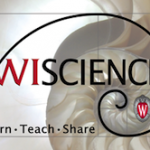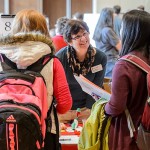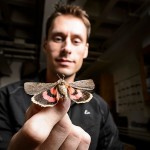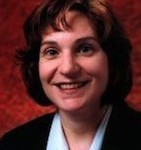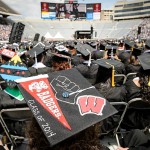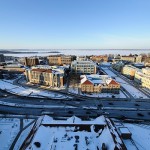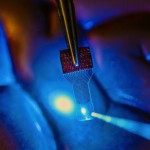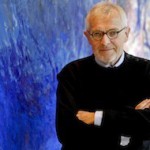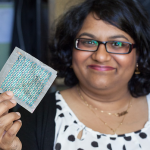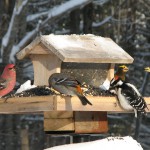Category Employee News
WISCIENCE to expand possibilities for science education, outreach
The University of Wisconsin–Madison’s Institute for Biology Education is announcing its expansion to become the Wisconsin Institute for Science Education and Community Engagement, or WISCIENCE. The new mission extends across the natural sciences and expands responsibility for facilitating cross-campus collaboration and coordination in the areas of science outreach and support for groups underrepresented in science.
Alumnus Winslow Sargeant delivers Multicultural Homecoming keynote
As the University of Wisconsin–Madison celebrates its Multicultural Homecoming, with the theme “Back to Where It Al Began,” alumnus Winslow Sargeant returns to his alma mater to deliver the keynote address.
Recent sightings: Major decisions
On Oct. 21, 2014, undergraduates attend the UW Majors Fair, held in Varsity Hall at the University of Wisconsin–Madison, where they could interact with advisors, staff and current students of over 100 UW departments and majors. The info fair allows students to research a variety of possible majors in a short amount of time and ask questions about upcoming courses and career options. (Photo by Bryce Richter / UW–Madison)
Partners in Giving maximizes impact of charitable gifts
The theme of this year’s Partners in Giving campaign, “Many Causes. One Community. Your Choice,” emphasizes the collective impact of thousands of charitable donations – and the freedom to pick the causes that matter most to you.
Meredith McGlone to head UW–Madison news and media relations
The University of Wisconsin–Madison has hired an experienced newspaper editor with deep ties to Wisconsin as its new director of news and media relations.
Wisconsin’s new ‘bug guy,’ insect detective arrives on campus
His favorite insect is one he has actually never seen alive in the wild. It lives on snowfields and glaciers in the American West, aptly named an ice crawler. But PJ Liesch, the University of Wisconsin–Madison’s new “bug guy,” continues to search for it. “I’ve been out West looking for them a couple of times and haven’t had any luck, so they’re kind of one I have on my bucket list, just to see one of those out in the wild,” says Liesch. The insect specialist officially took over as manager of the UW–Madison Insect Diagnostic Lab this summer.
UW-Madison to launch new transportation workforce center
The University of Wisconsin–Madison is launching a new center aimed at bolstering the Midwest transportation industry by providing training and opportunities for more people to pursue careers in transportation.
UW to serve as national hub for mentor training as part of diversity consortium
The University of Wisconsin–Madison will serve as a national hub for research mentor and mentee training for the National Research Mentoring Network (NRMN) recently announced by NIH as part of a national Diversity Program Consortium. The NIH will award the Diversity Program Consortium nearly $31 million in fiscal year 2014 funds to develop new approaches that engage researchers, including those from backgrounds underrepresented in biomedical sciences, and prepare them to thrive in the NIH-funded workforce.
When the isthmus is an island: Madison’s hottest, and coldest, spots
In a new study published this month in the Journal of Applied Meteorology and Climatology, University of Wisconsin–Madison researchers highlight the urban heat island effect in Madison: The city’s concentrated asphalt, brick and concrete lead to higher temperatures than its nonurban surroundings.
Seven receive Fulbright awards for doctoral research
The U.S. Department of Education has awarded grants totaling $306,628 to seven doctoral students at the University of Wisconsin–Madison, through the Fulbright-Hays Doctoral Dissertation Research Abroad (DDRA) program.
Professor honored for green chemistry research
University of Wisconsin–Madison chemistry professor Shannon Stahl is one of five scientists nationwide to receive a Presidential Green Chemistry Challenge Award from the U.S. Environmental Protection Agency (EPA) in recognition of his research on using oxygen from the air in chemical reactions.
See-through sensors open new window into the brain
Developing invisible implantable medical sensor arrays, a team of University of Wisconsin–Madison engineers has overcome a major technological hurdle in researchers’ efforts to understand the brain. The team described its technology, which has applications in fields ranging from neuroscience to cardiac care and even contact lenses, in the Oct. 20 issue of the online journal Nature Communications.
UW physicist receives American Ingenuity Award for IceCube effort
Francis Halzen, the University of Wisconsin–Madison physicist who was the driving force behind the giant neutrino telescope known as IceCube at the South Pole, has been named a winner of the 2014 American Ingenuity Award.
UW-Madison chemist named Packard Fellow
Trisha Andrew, a University of Wisconsin–Madison assistant professor of chemistry, is one of 18 early career scientists from around the country named a Packard Fellow for Science and Engineering. The award includes a grant of $875,000 over five years to pursue research and is given in recognition of the potential significance of scholarship and innovation from the nation’s most promising young scientists and engineers.
Climate change alters cast of winter birds
Over the past two decades, the resident communities of birds that attend eastern North America’s backyard bird feeders in winter have quietly been remade, most likely as a result of a warming climate. Writing this week in the journal Global Change Biology, University of Wisconsin–Madison wildlife biologists Benjamin Zuckerberg and Karine Princé document that once rare wintering bird species are now commonplace in the American Northeast.
Newsmaker who called out Microsoft president to speak at UW–Madison
Last week, when Microsoft CEO Satya Nadella told women in tech fields to wait to be rewarded rather than ask for raises, he was quietly but forcefully challenged by his interviewer, Maria Klawe. The next day, facing a storm of criticism, Nadella backpedaled, saying by email, “Maria’s advice was the right advice. If you think you deserve a raise, you should just ask.” Klawe, president of Harvey Mudd College will speak Friday at Union South about increasing women’s participation in science and technology careers on the University of Wisconsin–Madison campus.

